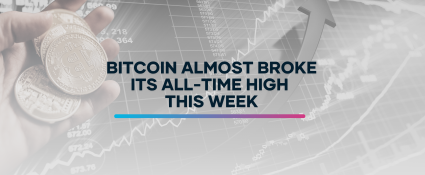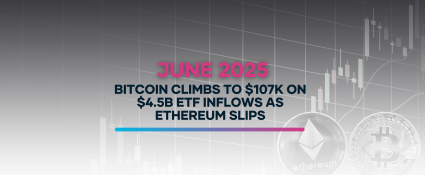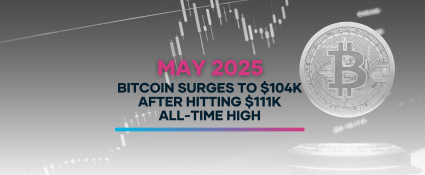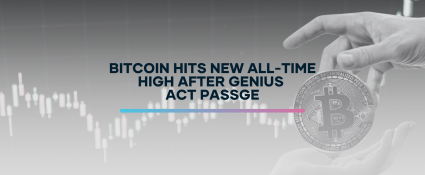Bitcoin Price: US$ 40,661.69(-2.39%)
Ethereum Price: US$ 2,999.92 (-2.69%)
A Week to Remember, A Week to Forget – Flash Update
- The last week has been particularly fretful as BTC attempted to stage a recovery on Jan. 20, but it was clearly short-lived. After price was rejected at ~$43K, BTC quickly found itself in a tight spot, having lost its bid at the $40K support.
- Today’s violent downside move was exacerbated in part by a series of liquidations that triggered as prices started to fall, putting BTC on a path towards the lows it made back in the summer of last year.
- Similarly, ETH has not been spared as it also continues putting in fresh lows; not the ideal start to 2022 we were all hoping for.
- Like BTC, the implication of these rapid price drops is felt throughout the futures market as positions thought to be safe are liquidated. Again, note how the liquidation amount spikes when key support levels get breached, namely around $3K and again at $2.9K ETH.
- The levels of liquidations we’ve seen over the last 24 hours aren’t nearly as high as we saw during the mid-May sell off, but the market was more skewed towards crypto-margin trading rather than cash-margin at that time, which tended to exacerbate the amount of liquidations we’d see as price declines became increasingly reflexive.
- Just as we thought the week couldn’t get any more chaotic, another concerning situation started to develop with MakerDAO in what appeared to be an on-chain liquidation event of ~$600M.
- The owner of this vault had opportunities to deposit additional collateral, but ultimately failed to do so. As such the auction process for the $600M has begun, with about $65M (or 32.2K ETH) being auctioned off in intervals as sidelined capital bids on the collateral marked for liquidation.
- After a portion of the vault’s ETH was auctioned off, the owner stepped in at the final hour to repay the required collateral, so funds are SAFU (for now) Continue reading..
Crypto and NFTs meet regulation as Turkey takes on the digital future
- Turkey — the cradle of civilization — is quietly digitizing despite its high-inflation economy, and the lira’s volatility might be correlated with the prices of Bitcoin (BTC) and Ether (ETH). During the fourth quarter of 2021, the TRY/USD exchange rate crashed from 9 to 18.5 liras per dollar in the six weeks leading up to mid-December before strengthening to as high as 10 liras and then falling back to 13.87 liras at the time of writing, rendering the currency a highly volatile asset.
- The first event was the release of the minutes from the United States Federal Reserve’s December meeting. They hinted that the U.S. central bank would reduce its pandemic-era stimulus and begin raising interest rates sooner than expected. This news triggered a sell-off in the global stock markets that spilled over into the cryptocurrency markets, with Bitcoin’s price ultimately crashing over 40% from its all-time high set in November 2021. Similarly, Ether dropped over 13% after the news to as low as $3,300.
- The second event was the anti-government riots in Kazakhstan, the world’s second-largest Bitcoin mining hub, which led to the country’s government being sacked and internet services shut down, leaving an estimated 13% of the world’s Bitcoin mining operations offline.
- The third event was the rapid worldwide spread of the Omicron variant of COVID-19, which wreaked havoc on long-term social and economic development by leaving millions sick and inundating healthcare systems that were already buckling under the cumulative toll of every previous surge. Reinforcing the idea that people shouldn’t live in constant fear of the virus, Ugur Sahin, the German-Turkish co-founder of COVID-19 vaccine maker BioNTech, highlighted that despite the virus being here to stay for a couple more years, the COVID-19 variants are becoming controllable, and that BioNTech is keeping its eye on new variants and new strains.
Bitcoin records all-time high network difficulty amid price fluctuations
- The Bitcoin (BTC) network has recorded a new all-time high mining difficulty of 26.643 trillion with an average hash rate of 190.71 exahash per second (EH/s) — signaling strong community support despite an ongoing bear market.
- The Bitcoin network difficulty is determined by the overall computational power, which co-relates to the difficulty in confirming transactions and mining BTC. As evidenced by the blockchain.com data, the network difficulty saw a downfall between May and July 2021 due to various reasons including a blanket ban on crypto mining from China.
- However, as the displaced miners resumed operations from other countries, the network difficulty saw a drastic recovery since August 2021. As a result, on Saturday, the BTC network recorded an all-time high of 26.643 trillion.
- Data from BTC.com estimates that the network will continue to grow stronger by attaining another all-time high in the next 12 days, with a network difficulty of 26.70 trillion.
El Salvador buys its cheapest 410 Bitcoin as prices reach $36K
- The Central American country of El Salvador has added 410 Bitcoin (BTC) to its central reserve as BTC prices trade below $37,000, a price last seen on July 26, 2021.
- The fresh addition to El Salvador’s BTC reserve was announced by President Nayib Bukele who confirmed that the purchase of 410 BTC was made against $15 million, placing the price at approximately $36,585 per BTC.
- The country has strategically accumulated 1,801 BTC over the past four months, especially when the market sees a momentary price fall.
SEC rejects MicroStrategy‘s Bitcoin accounting practices: Report
- Business intelligence firm MicroStrategy reportedly acted contrary to the Securities and Exchange Commission’s (SEC‘s) accounting practices for its crypto purchases.
- According to a Bloomberg report, a comment letter from the SEC released Thursday showed that the regulatory body objected to MicroStrategy reporting information related to its Bitcoin (BTC) purchases based on non-Generally Accepted Accounting Principles (GAAP). The business intelligence firm has been reporting that it used these methods of calculating figures for its BTC buys, excluding the “impact of share-based compensation expense and impairment losses and gains on sale from intangible assets.” Essentially, this negates some of the effects of the volatility of the crypto market.
- GAAP rules are seemingly not designed for reporting the value of cryptocurrencies. However, MicroStrategy has purchased 124,391 BTC as of Dec. 30, representing more than $4.7 billion in value across several buys totaling roughly $3.8 billion since August 2020. The company reported it used non-GAAP practices to exclude “cumulative impairment losses” from the cost, basing the value of its holdings on the market price of 1 BTC at 4:00 pm EST on the last day of each period.
- MicroStrategy said, following a BTC purchase in July 2021, that it “believes that these non-GAAP financial measures are also useful to investors and analysts in comparing its performance across reporting periods on a consistent basis.” The SEC reportedly said MicroStrategy should “remove this adjustment in future filings.”
Bulgaria’s finance minister says the country is exploring crypto payment options: Report
- Assen Vassilev, Bulgaria’s deputy prime minister for EU Funds and minister of Finance, said the EU member nation is exploring options for rolling out a crypto payment mechanism.
- According to a Friday Bloomberg report, Vassilev said the government was in discussion with the Bulgarian National Bank as well as industry players to explore crypto payments “in the short to medium term.” However, he added that Bulgaria was unlikely to become a major hub for crypto miners — many are reportedly considering leaving Kazakhstan amid political turmoil and disruptions to the internet.
- The Bulgarian government may still be one of the biggest HODLers in the world following the seizure of 213,519 Bitcoin (BTC) from an underground crime network before the 2017 bull run — valued at roughly $3.5 billion at the time, but more than $8.2 billion at the time of publication. It’s unclear if officials sold or auctioned the crypto at the time or continue to hold the digital assets.











